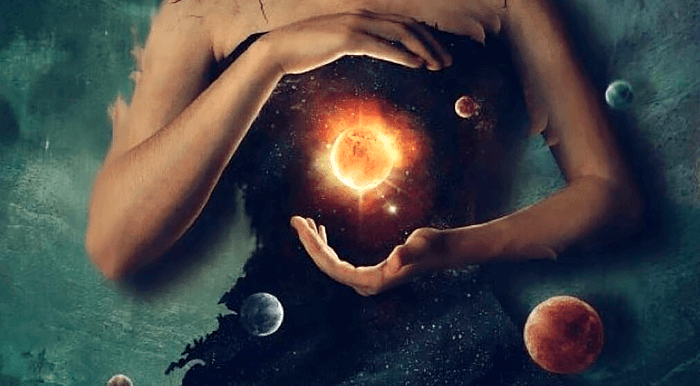
Tough Times: Opening the Heart Protector
During this time, many people have been faced with major fears and confrontations. I’ve witnessed relationships ending suddenly and dramatically, serious illness, deaths of loved ones, loss of jobs. The person combined with the global strife and conflict is putting a lot of us on edge. These are all natural worldly occurrences, both the person difficulties as well as the unfortunate global issues. However they are particularly intense, frequent and widespread lately. All these forces can cause us to feel very destabilized.

One thing I have learned through my spiritual process: what is outside is also inside.
Every confrontation with the outside world is really a confrontation with the self. Also, that which is occurring within us can be reflected into the external world to create a like reality.
Taoist philosophy teaches, whatever we observe outside ourselves is a reflection of what’s already within us.
This is the theory of resonance. Things don’t show up in our lives if they don’t already have residence within us. Chinese Medicine shows this to be true on a physiological level. Seasonal allergies are a good example. Allergies are differentiated into three types in Chinese Medicine: wind-cold, wind-heat and wind-damp. The ‘temperature-climate’ of a condition describes its basic nature. Environmental weather conditions or so-called allergens bring on symptoms we think of as “seasonal allergies.” In actuality, the external weather or allergens are resonating with the wind-cold, wind-heat or wind-damp that already exist in our bodies. We are not being attacked by something external; something internal is resonating with the external trigger, causing symptoms. It is not the cat that is problem, it is the internal wind-damp terrain within our own bodies that is creating the runny nose, itchy eyes, headache and fatigue. Get rid of the dysfunctional internal terrain and the exterior trigger ceases to be a problem.
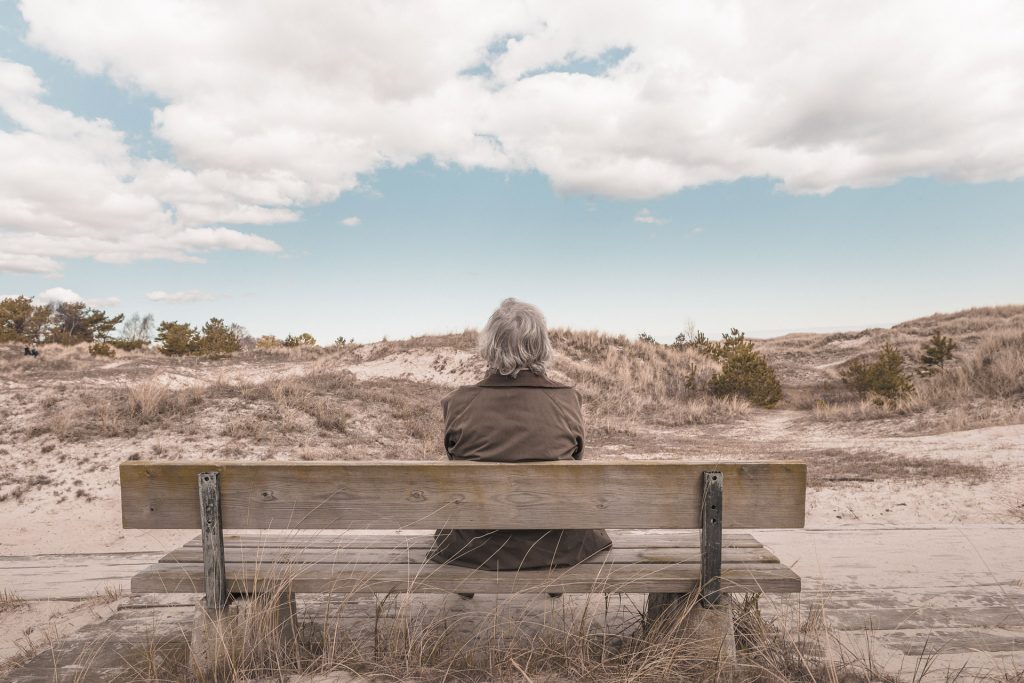
The same is also true with relationships and circumstances around us. The angry people we encounter on the street: they are pieces of us. The person who lets us down and cannot keep his promises: that is a part of us. Reflection and resonance. When we begin to understand this concept, people and circumstances that surround us become great teachers. They are mirrors that help us see within ourselves: what we are holding onto or allowing residence inside our bodies and minds.
Through opening our eyes and recognizing what is around us, we can begin to take greater responsibility for our lives, stop feeling victim to the external world, and gain insight into the realities we are creating.
To realize we create our own reality can be very empowering. It may seem to some like a form of blame. On the contrary. When we take responsibility for what is showing up in our lives, we gain the ability to change the dynamics and circumstances causing us to suffer.
There is an acupuncture point on the Small Intestine meridian called “Nao Shu,” translated as “the Shu point for the upper arm.” The name of this point sounds very physical. Yet the symbolism of the upper arm, as well as the term “Shu” have deep philosophical significance. “Shu” means to transport: a vital physiological form of movement. The upper arm is the hinge by which we reach out and manipulate the world. It controls the hands: the tools by which we grab the world and handle the circumstance of our lives. It is the strength of the upper arm which bears the weight of what we hold onto in our lives: our responsibilities, possessions, acquisitions.
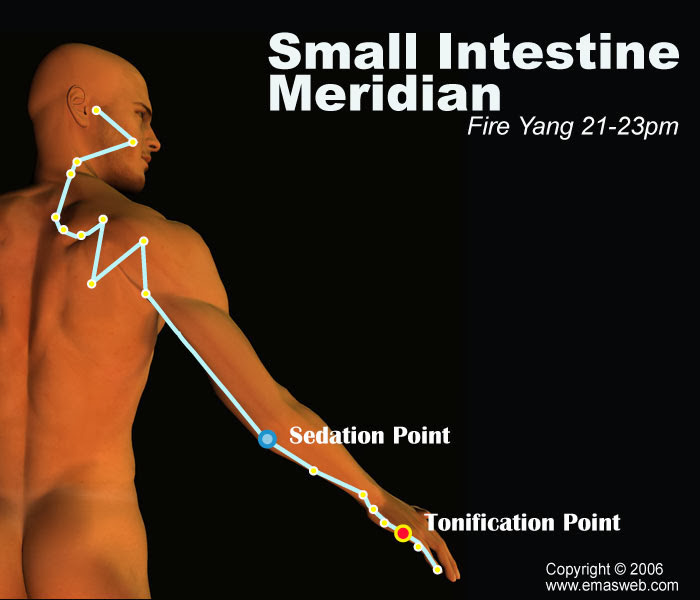
The Small Intestine is a channel that relates to the process of sorting, mostly relating to relationship – amongst ourselves and the world. “Nao Shu” relates to the recognition we feel in our heart as we witness something familiar outside ourselves. This resonance may cause us to look at ourselves differently, or at the very least begin to examine certain aspects of ourselves.
The world is a mirror where we can see ourselves. The Small Intestine philosophically is the passage by which we contemplate the mystery of our incarnation. It deals with themes of mortality, purpose and meaning in our life.
Dysfunction of the Small Intestine can give rise of symptoms of anxiety and jealousy. When we are unable to understand the value of our individual incarnation, we can feel a sense of jealousy, wishing we had what others had, or wish were someone else altogether. When we lack the proper sorting capability governed by the Small Intestine, we may feel a sense of anxiety, feeling out of sorts with our environment, unable to find comfort in the present moment, without a sense of orientation within our past and future.
The Small Intestine is a link between our Heart (mind and desire) and Kidneys (will and essence). In health, our mind is connected with our will, informing our desires, which give rise to our actions and our ability to manifest.
Blockage in the passage between the mind and the will can also cause the Liver to become agitated. Anger, frustration and depression can result. We may feel infuriated or victimized that certain things are happening to us. Some things in life, like death and the weather are inevitable and cannot be helped. Others, like loss or feeling indignified, insulted, abused and hurt can be about more than meets the eye.
The acupuncture point “Shao Fu,” translated as “the lesser palace,” belongs to the Heart channel. The Heart channel is classically used as a support for challenges that come up along the spiritual path. Some of us feel we are consciously leading a “spiritual” life. Yet to the ancient Taoists, everyone’s life is a spiritual endeavor. Every circumstance is a lesson, every person a teacher. “Shao Fu” helps us recognize that loss is a necessary part of living. Life is essentially about letting go. We are born, we achieve and accumulate. Eventually though, we lose everything: our bodies and even our very lives. Buddhism teaches that all desires contain the seed of suffering. We suffer when we don’t get what we want. We also suffer when we do get what we want, often for fear of losing it. One of the main roots of suffering, say the Buddhists is ignorance. We suffer because we don’t understand the nature of life. We have a dysfunctional relationship with loss and gain, praise and blame. We foolishly think things can last. And we suffer each time we are reminded that they don’t. Change is the most basic reality of life.
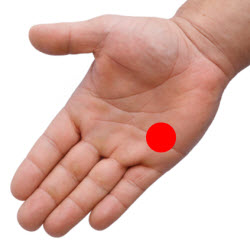
The term “Fu” or palace refers to a desire: something we dearly want, or dearly love. “Shao Fu” helps us become less attached to our desires. Not to say we should not love or try to achieve. Instead, “Shao Fu” helps us realize the true nature of loss and gain. Can we love fully, allowing ourselves to be fully present, fully engaged and committed to the moment, even when we know whatever we love will eventually end and be lost? This is the challenge of the Heart.
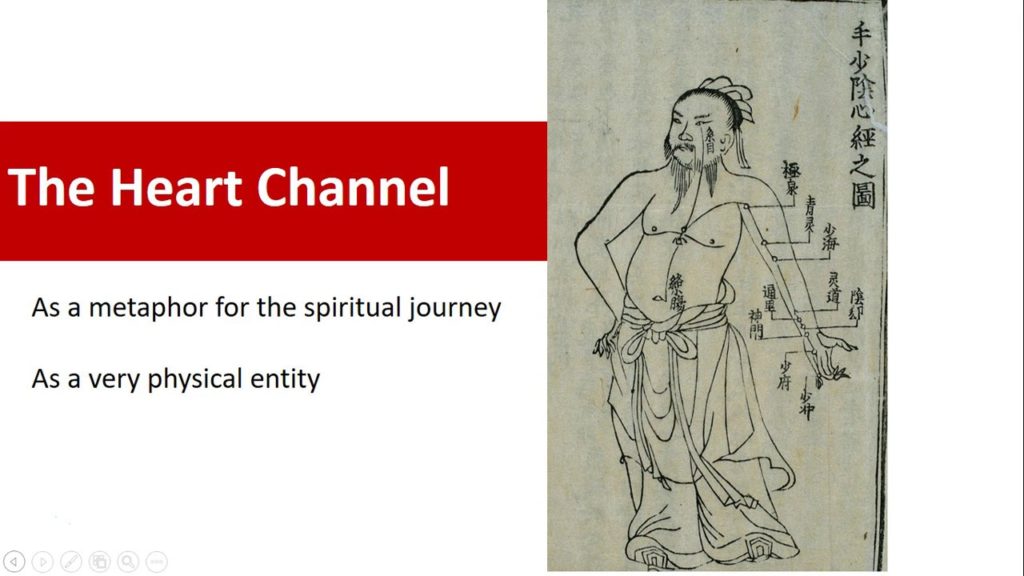
At times of great loss and rapid change, we are given a crash course in reality. I don’t think these times are meant to punish or torture us. Change is a constant. Loss is a reality in life. Our liberation from suffering comes from making friends with reality. Train in staying present and committed even when we know it is all temporary.
The Heart is a very important organ in Chinese Medical theory. It is the only organ that is given two acupuncture channels. In addition to the Heart channel, there is the Heart Protector. Psychologically, the Heart Protector (Pericardium) relates to neurosis: being involved in our lives, yet lacking engagement. What does this mean? Remaining somewhat removed from that which we are living. A lack of commitment. Rather than give ourselves totally to the moment, we remain somewhat removed: we protect our heart. We fear getting hurt or making the wrong choice. So we remain in a state of neurosis, not fully committing. The Heart Protector can confuse us about the meaning of true love, which is unconditional.
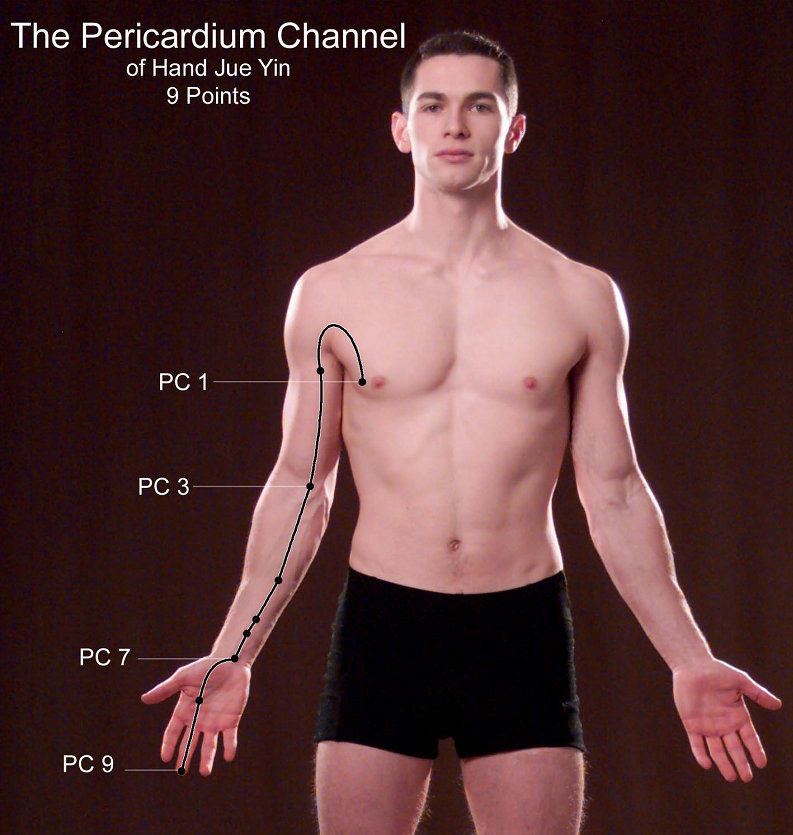
The heart by nature is “empty,” yet it has a tendency to fill quite easily. Opening our hearts can feel quite threatening. It is at this moment that old hurts, “heart pains,” can surface. We may think the process of opening our heart is creating this pain, that something from the outside is attacking us. However, this is a process of clearing the heart; an attempt to empty. The fear of pain, hurt and disappointment can stimulate the Heart Protector to begin shielding us. We enter into a state of neurosis and non-engagement, mentally controlling the situation. Instead of surrendering to the moment, we partially detach from it. We fear the heartbreak of loss, so we refuse to engage.
The heart is prone to sadness. Is there a greater sadness than to look back with regret that we never let ourselves fully engage? If we take the point of view that the world is full of love, it can become our job to open to that love and reflect it. Our work is to strengthen our courage, allowing us to engage with the world fully; to stabilize our Heart Protector so it can remain open when we are fearful of loss and disappointment. Let this time of change and challenge strengthen your valor: train in being the white knight who penetrates through the illusion of loss and gain.




No Comments